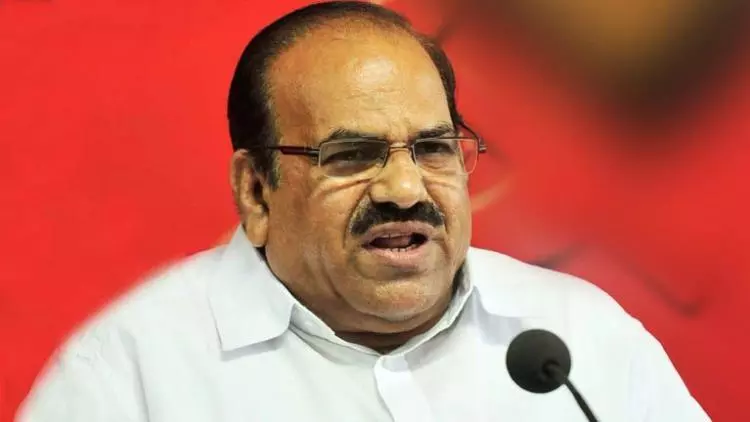
CPM should not communalise reservation protests
text_fieldsImplementation of 10 per cent reservation for upper castes, who form a mere 20 percent of Kerala's population, by the left government, has got into a phase of facing further protests. Two factors have made it into a more inflammatory dispute. The first reason is that only recently have the facts and figures come to light about what happened when the same model of reservation was applied in educational sector. The figures showed that the savarna segment has become the largest reservation-eligible section of the population. The figures illustrated that when upper caste reservation was implemented in admissions to Plus-One, MBBS, medical PG, LLB via entrance and engineering admissions, the newly added reservation community secured more reserved seats than backward communities did. In medical PG admissions, for example, when Ezhava and Muslim communities got 113 and nine seats respectively under reservation, the upper castes took away 30 seats. In MBBS, Ezhava and Muslim communities secured 94 and 84 seats respectively, whereas forward castes got 130 seats.
The same happened in other courses too. It is only two weeks ago that these figures came into the public domain. The backward communities started expressing understandable indignation at this effective toppling of the very principle behind reservation, and that rage was fuming also at the government's approach in the matter. Amidst this furore came the government's decision to introduce forward class reservation in PSC 's recruitments too – which is the second reason for the protests heating up. In educational sector, the upper castes, who comprise only 20 per cent of the population, have emerged as the class eligible for the highest reservation percentage. Critics of the new reservation decision are naturally concerned that this is going to happen in employment sector too. The LDF government may argue that forward caste reservation is part of their election manifesto, it won the polls with that manifesto before the people and therefore it carries the mandate to implement reservation for forward castes. But there is a flip side to it that this is a matter under challenge and pending in the court and reasonably the government could have waited till the verdict comes from the highest country. Now, the more consequential aspect is that even if the court ratifies the decision, what Kerala government has introduced is at variance with all norms in granting a quantum reservation that is far above that of backward castes. But when this is highlighted, the chief minister and his party are not prepared to see the point and respond with an air of arrogance.
It is equally objectionable that at the face of backward communities' anger at the new decision, the ruling parties are trying to communalise it. The artcle that the CPM state secretary wrote in the party organ on 30 October speaks for the poisonous mind-set with which the CPM is approaching the issue. One of the findings in Kodiyeri Balakrishnan's article is that it is the Jamaát-e-Islami which calls the shots the anti-government protests over upper caste reservation. It is an inherent habit for the sangh parivar entity in north India to blame Pakistan for anything bad. An approach almost comparable to this is what the CPM in Kerala has been adopting in any issue, the only difference being that instead of Pakistan, it accuses Jamaát-e-Islami. The CPM was thus blaming the Jamaát for all protests to its displeasure, such as GAIL pipeline agitation, national highway protests, and the resistance against sand mining.
As a matter of fact, all the stake holder communities in the issue of reservation including scheduled caste/tribes, Ezhava, Latin Catholic and Dheevara castes are irate at the government action and in the path of protest. When the CPM reduces it to a Jamaát-led move, the CPM is becoming party to a communal move. Kodiyeri's article also contains a reference about 'the Muslim Leage which now declared a jihad against the economic reservation'. When a party that participates in the democratic process of the country makes an intervention, and if a rival labels it as a jihad, what is it other than communalism? The government and the party leading the coalition should be prepared to lend an ear to the issues raised by the reservation communities and hold dignified debates with them. The CPM should end the attitude of igniting an anti-Muslim public discourse whenever the government faces trouble. If the CPM plan is to play politics with that brand of communalism, the BJP is better trained in that art than any Communists. What the CPM does through this will be letting the BJP reap the harvest without effort from a field that it had ploughed by itself.























